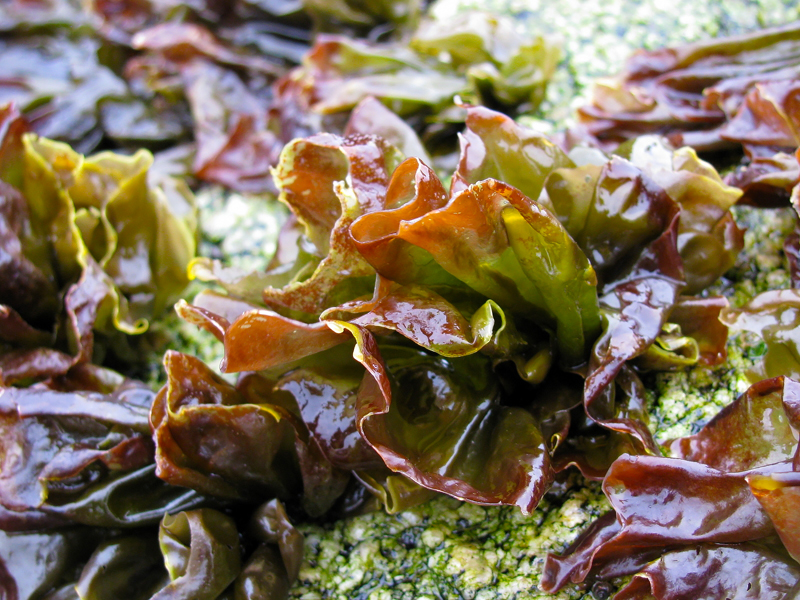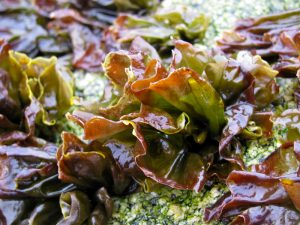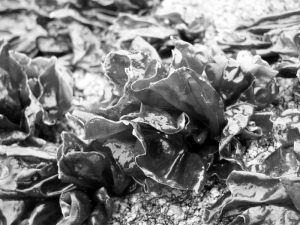
Dra. Loretto Contreras: Al rescate de las algas de Chile
Desde la antigüedad, el ser humano ha incorporado las algas marinas en su dieta diaria. Debido a su alto aporte de nutrientes como yodo y potasio, estos productos se han mantenido en la alimentación de las personas. Gracias a su extensa costa, Chile es un reconocido actor en la industria de los recursos algales, beneficiando
principalmente a la pesca artesanal.

En este sentido, la Dra. Loretto Contreras Porcia, investigadora del Departamento de Ecología y Biodiversidad de la Facultad de Ecología y Recursos Naturales de la Universidad Andrés Bello, desarrolla estudios que proponen una nueva caracterización del luche chileno o nori, una de las algas presentes en las costas de Chile, facilitando su individualización, reproducción en laboratorios y generación de cultivos.
La iniciativa de la investigadora, financiada por un proyecto Fondecyt regular y proyectos internos UNAB, responde a la necesidad, tanto de la ecología como del desarrollo de las actividades económicas en torno a la extracción de algas, de conocer a cabalidad las características propias de las especies endémicas del país, tales como la tolerancia que presentan ante el estrés ambiental.
El trabajo de la Dra. Loretto Contreras Porcia ya ha rendido frutos. De hecho, se logró definir un nuevo modelo taxonómico de la especie, la cual recibe el nombre de Pyropia orbicularis y que se distribuye desde la costa central hasta Punta Arenas.
Además, esta investigación busca conocer las características genéticas de la especie y cómo ésta reacciona frente a distintos tipos de estímulos ambientales. En esta línea, la investigadora UNAB destacó que la información que han obtenido en los últimos años les ha permitido determinar claramente los patrones o respuestas ecológicas asociadas a otros organismos y a factores físicos como la temperatura y la humedad ambiental.
“La investigación que hoy estamos llevando a cabo, consiste en entender desde un concepto génico cuáles son las respuestas que regulan que algunas algas existan en ciertas áreas y otras no”, explicó la académica.
“Lo fantástico de esta alga es que durante el proceso de estrés ambiental, produce compuestos que tienen factores antibacterianos y antioxidantes. Incluso se han determinado factores terapéuticos contra el cáncer”, precisó la Dra. Loretto Contreras Porcia.
Descargar PDF: Al rescate de las algas de Chile
Rescuing Chile’s algae
Since antiquity, humans have incorporated seaweeds into their daily diet. These plants provide high quantities of important nutrients such as iodine and potassium, due to which they still remain a part of people’s diets today. Thanks to its extensive coastline, Chile is a recognized player in the algae production industry, with artisan
fishermen as the primary beneficiaries.

To support this important industry, Dr. Loretto Contreras Porcia, investigator from the Department of Ecology and Biodiversity, Faculty of Ecology and Natural Resources at Universidad Andrés Bello, is carrying out research that proposes a new characterization of Chilean “luche”, or nori, one of the alga present along the Chilean coastline.
This research will facilitate the identification, laboratory reproduction, and establishment of cultivation centers for this alga.
This initiative, financed by project grants from Fondecyt and UNAB, responds to the ecological and economical need, in terms of algae extraction, for fully understanding the traits of endemic algae species, including tolerance to
environmental stress.
The work by Dr. Loretto Contreras Porcia has already produced results. In fact, a new taxonomic model was defined, resulting in the classification of a new species termed Pyropia orbicularis, this which is distributed from the central coast to Punta Arenas.
Moreover, continued research aims to determine the genetic characteristics of this species and to understand how it reacts to different stimuli. In regards to this, Dr. Contreras highlights that information obtained over the last years has allowed for clearly defining patterns and ecological responses associated with other organisms as well as of physical factors such as temperature and environmental humidity.
“Our current investigations consist in understanding, from a genetic perspective, the responses that regulate why some algae exist in certain areas but not in others”, explains the investigator.
“The amazing thing about this alga [P. orbicularis] is that when it faces environmental stress, it produces compounds that have antibacterial and antioxidant effects. We have even discovered some compounds that could be used in cancer therapy”, comments Dr. Loretto Contreras Porcia.
Download PDF: Rescuing Chile’s algae
